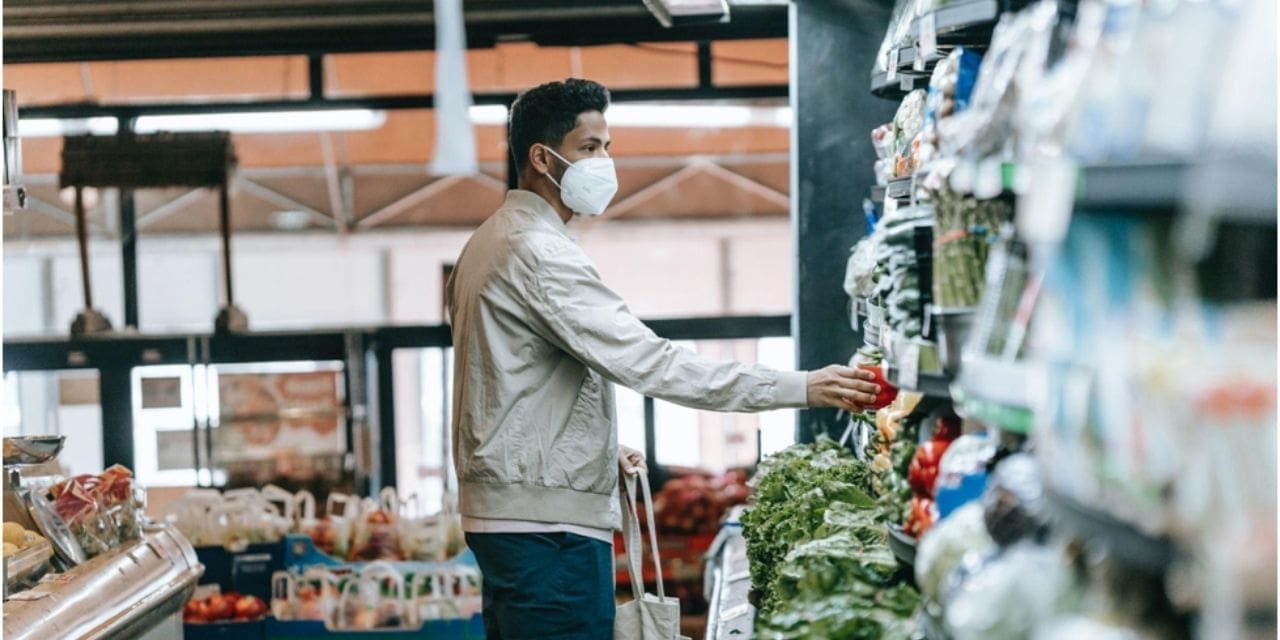Is it possible to go grocery shopping with zero waste? Yes, it is!
As much as we want to go grocery shopping sustainably, sometimes it seems impossible. It’s not always easy to go zero-waste from the shop’s plastic bags, single-use packaging to the plastic nettings. But, it can be done.
When we’re mindful of what we eat and what food we buy, we can take control of our lives and overall health. With enough willpower and preparation, you can achieve your shopping goal sustainably. Depending on where you live, there are many stores and shops going plastic-free. Making more eco-conscious decisions about how we shop can greatly impact our goal to lessen plastic pollution.
If you’re stuck on how to go zero-waste while grocery shopping, we’ve got your back. We listed a few tips on better buying habits, things to look for, and preparation to make your grocery shopping low-waste.
7 Zero-Waste Grocery Shopping Tips
1. Shop at farmers’ markets
If you can, choose to shop at farmers’ markets in your area. These community markets help minimize the amount of waste and pollution by trying to avoid plastic packaging. Vendors usually wrap their goods in recycled paper instead of commercial plastic bags. You can use your reusable bags when shopping.
Farmers’ markets are a great place to buy organic and local produce. Local farmers use organic practices that reduce pesticides and fertilizers most of the time. It’s sustainable to buy products locally because it limits the carbon footprint. Fresh foods that need to be transported via air freight can impact greenhouse gas emissions.
2. Look for the Bulk Section
When grocery shopping, make a stop at the bulk section. Buying in bulk helps the environment and your wallet. When you buy prepackaged products, they can be more affordable. Not only can you save by not buying the packaged ones, but you get to decide how much you need. This way, you reduce food waste and spoilage.
You also get to use those mason jars or glasses that you’ve kept in your cabinet. Fill them with your favorite nuts, dried fruits, spices, and more.
3. Bring your bags and avoid plastics.
Wherever you can, choose to avoid plastics. Whether it’s foods with plastic packaging or shops that pack their foods in single-use plastic bags, make a conscious effort to avoid them. When given a choice between bottled condiments and one in a plastic container, grab the one in the bottle even if it costs a little more.
Skip the mixed prepacked one and go for the package-free version when choosing vegetables. It can take more time to prepare, but you get to choose only the ingredients you like. Bring your bag when shopping, so you can miss the bagging section at the counter.
4. Only Buy What You Need
A simple tip when grocery shopping: Don’t go when you’re hungry. It may seem silly and odd, but it works. Don’t underestimate the power of an empty stomach. When you’re hungry, you might be swayed to buy foods you don’t need. Buying on impulse can cost you money and make you buy foods that you’ll probably not finish.
It may seem old-fashioned to hear but having a grocery list stops you from buying too much. When you know what you need, you don’t end up buying small, wasteful items.
5. Consider Alternatives
There are already many sustainable alternatives you can consider for necessities. Instead of buying plastics, you can look for materials to reuse and recycle. Skip the paper towel section and buy more washable/ reusable tea towels or napkins. You can even save money by making your own wet wipes. Instead of buying bottled water, you can use a reusable stainless steel or glass water bottle.
6. Choose Sustainable Food
Like they often say, not all foods are created equal. There are healthier food options that promote a more eco-friendly lifestyle. For example, beans have a lower carbon footprint, while rice produces the lowest soil erosion.
Wherever possible, choose organic fruits and vegetables. Organic agriculture reduces non-renewable energy use by avoiding chemicals like pesticides, fertilizers, or herbicides.
7. Store Food Correctly
Your mission doesn’t end after grocery shopping. You also have to make sure your goods are stored properly. Sometimes buying fresh fruits and vegetables feels like a ticking time bomb waiting for you to consume. Try to reduce food spoilage by knowing how to store products properly as much as you can.
Fruits such as bananas and apples emit natural gases that may affect nearby produce, making them spoil faster. You may want to store them together in a bin away from the others.
Maintaining an eco-friendly lifestyle
Keeping a sustainable lifestyle is an everyday decision. Together, if we continue making conscious efforts to live sustainably, we can make a huge global impact.

